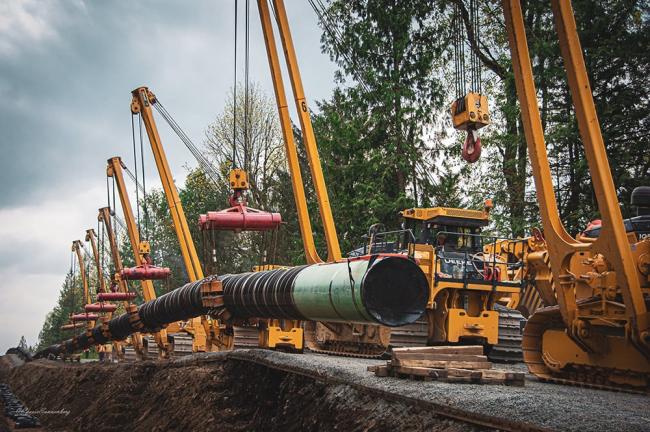Articles Menu

Apr. 11, 2024
The federal carbon tax increase is now in effect, and will raise gas prices by three cents per litre in most Canadian provinces.
Yet this ongoing debate overlooks a far costlier carbon tax: fossil fuel subsidies.
These subsidies cost Canadian taxpayers at least $6.03 billion or roughly $214 per taxpayer every year. And unlike the federal carbon tax, Canadians don’t get a rebate on this tax.
Fossil fuel subsidies are a big problem across Canada. The federal government has spent $35 billion on the Trans Mountain oil pipeline and $275 million on a liquefied natural gas facility. The Canadian oil and natural gas sector also benefits from special tax breaks under the Income Tax Act.
British Columbia, Alberta and Saskatchewan give more than $2.5 billion in royalty reductions and tax exemptions to the fossil fuel industry every year. Ontario gives $500 million in tax breaks to aviation and agricultural fuels. Manitoba, Quebec and the Atlantic provinces give similar tax exemptions to fuel and natural gas.
A billion here, a few billion there — all these subsidies add up to a big cost to Canadian taxpayers. While oil and gas companies boast about record profits, Canadian taxpayers are footing the bill.
These explicit fossil fuel subsidies are only the tip of a growing iceberg.
They don’t include the health-care costs of air pollution, which is responsible for five million deaths worldwide every year. They also don’t include the future costs of cleaning abandoned oil wells, unpaid municipal property taxes and other costs abandoned by fossil fuel companies.
Fossil fuel subsidies are a problem at multiple levels. They frustrate climate change mitigation efforts because they increase the profitability of fossil fuels.
This creates a perverse incentive that actively encourages further pollution.
They also create artificially lower prices for fossil fuels, which is why libertarians and free market conservatives have opposed these so-called fossil fuel welfare payments.
Fossil fuel subsidies also impose an opportunity cost. The taxpayer money used for fossil fuel subsidies could go to more valuable projects, such as building more homes, just as the federal government used to do until the early 1990s.
Just the federal portion of the subsidies over the last four years could have funded every solar and wind project in Canada or doubled public transit ridership. The money could also fund schools, hospitals or tax cuts.
For these reasons, there is a mounting consensus that fossil fuel subsidies in Canada and elsewhere should be eliminated.
There have been various attempts to eliminate fossil fuel subsidies. In 2009, then prime minister Stephen Harper and other G20 leaders pledged to phase out “inefficient” fossil fuel subsidies.
At the 2022 United Nations climate change conference, all UN member states committed to “accelerating efforts towards the phase-down of... inefficient fossil fuel subsidies.”
In the past few years, U.S. President Joe Biden has sought to scrap oil and gas industry subsidies.
Last June, the House of Commons studied the phaseout of fossil fuel subsidies. Following the report, Environment Minister Steven Guilbeault released a plan to eliminate some but not all fossil fuel subsidies.
Despite these calls for reform, many fossil fuel subsidies persist and continue to cost us billions. Indeed, Canadians still spend more to support oil and gas extraction than Australia, Germany, Japan, Mexico and the United States.
Eliminating fossil fuel subsidies may not be a silver bullet to solve climate change, but it could make a big difference in meeting our climate goals. It just makes dollars and sense.
Steve Lorteau is an SJD candidate in the faculty of law at the University of Toronto. This article was originally published by the Conversation.
[Top photo: The federal government has spent $35 billion on the Trans Mountain pipeline alone. Photo via Trans Mountain.]